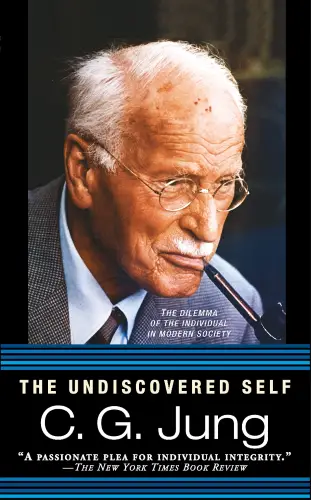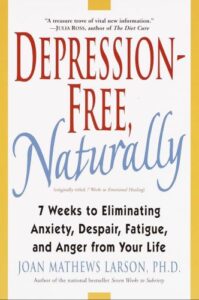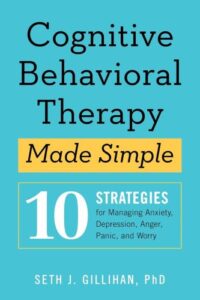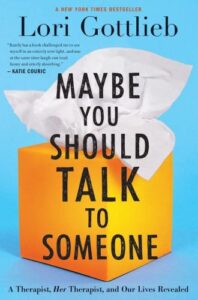The Undiscovered Self
Book Author: Carl Jung
Summary reviewed by:
Terrence Timmons
Terrence Timmons
Analyst
Bachelor of Arts (BA), University Of California, Santa Barbara 2019
With over 4 years of experience as an analyst. Terrence Timmons is committed to analyzing summaries without compromising on quality.
The Undiscovered Self: Summary
In the depths of the human psyche lies a realm so vast and unexplored, it could be the final frontier of our personal discovery—this is the core premise of "The Undiscovered Self" by Carl Gustav Jung, the eminent Swiss psychiatrist and psychoanalyst. At the heart of Jung's thesis is the assertion that modern society, with its rationalism and mass culture, undermines individuality, leading to a disconnection from the inner self. Jung, leveraging his profound expertise in psychology and years of clinical experience, navigates the reader through the intricate landscape of the unconscious mind, drawing on scientific theories and research in the fields of psychology, mythology, religion, and dream analysis.
This book does not merely present a problem; it offers a path to resolution, grounded in Jung's analytical psychology. It emphasizes the importance of understanding and integrating the unconscious aspects of oneself to achieve a balanced and whole personality. This process, which Jung terms individuation, is presented as a realistic and achievable goal, essential for both personal development and societal health. Jung argues that by confronting and reconciling with the shadow self and recognizing the role of archetypes, individuals can attain a more profound self-awareness and authenticity.
Jung provides readers with practical strategies for embarking on this journey of self-discovery. For instance, he advocates for the engagement with dreams and symbols as a method to access the unconscious mind. He also discusses the significance of personal rituals and creative expression as tools for psychological growth. Throughout, Jung stresses the importance of the individual's experience and the unique path each person must take towards self-discovery.
"The Undiscovered Self" serves as a guide for applying these principles in everyday life, encouraging reflection, self-examination, and the pursuit of meaning beyond the superficialities of modern existence. Jung includes discussions on the psychological effects of political and social conformity, highlighting the dangers of losing touch with one's individuality. The book is replete with exercises, such as journaling and meditation, aimed at fostering a deeper connection with the inner self.
In essence, Jung's work is a call to action—a plea for individuals to delve into the uncharted territories of their inner worlds, not only as a quest for personal enlightenment but as a crucial step towards the betterment of society as a whole. Through "The Undiscovered Self," Jung provides a roadmap for this expedition, offering insight, wisdom, and practical advice for those brave enough to embark on this journey of self-discovery.
The Undiscovered Self: Genres
Non-fiction
Psychology
Psychoanalysis
Philosophy
Self-help
Social Criticism
Analytical Psychology
The Undiscovered Self: Themes
Individuality vs. Collectivism: Jung explores how modern society’s emphasis on conformity and mass culture erodes personal identity. He uses the rise of totalitarian regimes as an example, illustrating how they exploit the collective at the expense of the individual psyche.
The Unconscious Mind: A central theme, highlighting the importance of acknowledging and integrating the unconscious aspects of oneself for overall psychological health. Dreams and symbols are discussed as windows into the unconscious.
The Shadow Self: Jung introduces the concept of the shadow, the parts of ourselves we deny or ignore. He emphasizes the need for individuals to confront and integrate their shadow aspects to achieve wholeness.
Individuation: The process of becoming aware of oneself and integrating the different parts of the personality. Jung sees this as essential for personal development and a counterbalance to the homogenizing pressures of society.
Religion and Spirituality: The book discusses the role of religious belief and spirituality in understanding the self. Jung argues that modern society’s decline in religious observance leads to a lack of meaningful rituals that facilitate individual self-discovery and connection to the collective unconscious.
The Undiscovered Self: Methodology
In the creation of this summary for "The Undiscovered Self" by Carl Jung, our approach was meticulously aligned with the intent to deliver content that resonates deeply with you, our reader, stirring your curiosity and enriching your understanding. Through expert analysis, we delved into Jung's intricate exploration of the psyche, ensuring our interpretation faithfully mirrored his profound insights on the relationship between individuality and society. Our synthesis aimed at distilling Jung's complex theories into accessible insights, emphasizing their practical application in fostering personal growth and understanding. This process was underpinned by a commitment to quality and integrity, ensuring the summary not only captivated your attention but also served as a reliable guide to Jung's timeless wisdom.


The Undiscovered Self
Date Published: 1958
Disclaimer: As an Amazon Associate I earn from qualifying purchases.




